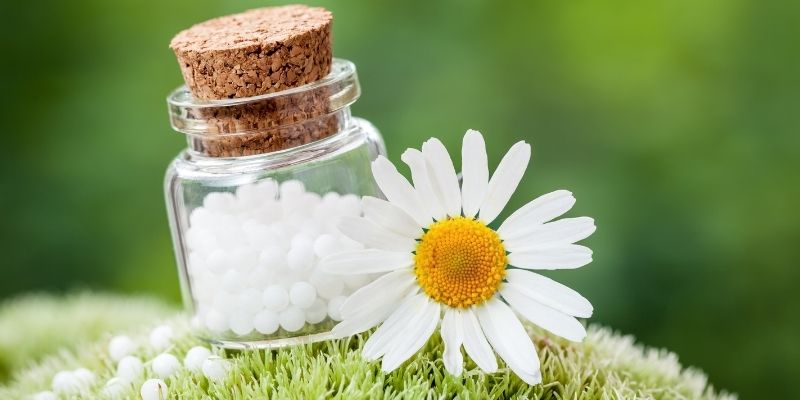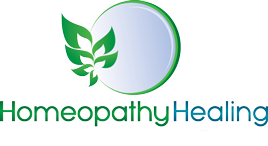
If you’re considering homeopathy for the first time, it’s only natural you may have questions. I’ll address some of the main ones here.
1. “Isn’t homeopathy a slow process?”
That depends on how you view the word “slow”.
Imagine for a moment that your health is an either/or exercise. You’re told that you can either have instant relief from a chronic illness but will spend the rest of your life on meds, or you can get better more slowly but with a treatment that doesn’t just manage your condition but actually focuses on its root cause.
Would speed still be the deal-breaker?
How slow or fast homeopathy gets to grips with your condition depends on the nature of your illness.
If it’s an acute ailment (like a sore ear or sore throat; both self-limiting, short-term conditions) you could be on the mend within a few days or even hours.
If it’s a slow, chronic disease, however (like irritable bowel syndrome or arthritis) it’ll need more time to heal because the changes it caused did not happen overnight but will have been ongoing for a while. Gentle healing at a pace your body is comfortable with will take time.
‘Slow’ doesn’t mean ‘nothing’s happening’, though. Longer-term treatment doesn’t mean that you won’t begin to see positive changes in mood, energy, sleep, pain reduction, anxiety easing, etc. right away.
Homeopathy is a process, as it works on the underlying cause of your illness. While you will often notice a response quite quickly, healing takes time. The length of treatment depends on many factors, such as the nature of your illness, whether it’s acute or chronic, your medical history and what personal circumstances have contributed to your condition.
With health, of course, there can be no guarantee that any particular treatment will work but whatever the outcome, you have a simple question to ask yourself at the outset. Do you want to aim at feeling better instantly or long-term?
2. “Homeopathy has side effects and can’t be used alongside conventional medicine”
Homeopathic remedies not only work but are natural, gentle and safe. A special preparation process called potentisation refines the remedies to remove any toxic side effects.
They are safe to use alongside conventional medicine and as they work in a different way they do not interfere with other medication. It is nevertheless important that you inform your GP if you are on homeopathic medicine and that you stay on your GP-prescribed medications unless otherwise discussed with your doctor.
Homeopathic remedies have no addictive properties and can be used safely by children and adults.
This is a natural system of medicine recognised by the World Health Organisation as the second most extensively practised medical system in the world*.
3. “What if you haven’t worked with my particular condition before?”
This is usually among the first questions that I’m asked.
Having had the pleasure of working with hundreds of women, men and children from all walks of life, it would be impossible to list all the ailments they bring to me, yet the beauty of homeopathy is that I don’t need to have worked with a particular condition before, to be able to help you.
Why? Because Homeopathy treats the person, not the disease. While the name of your condition will give us indications of typical symptoms, in homeopathy we want to know more. We want to know specifically how it affects you – your symptoms, your triggers, your experience, your description of the pain, what makes it worse or better for you and how you cope with it. The prescription is then made based on your needs, not on a one-pill-fits-all basis for that specific condition.
So, for example, if I see 10 people with anxiety, each of them may receive a different remedy based on their unique situation. I would prescribe based on factors such as what preceded or triggered the anxiety, how it affects each person physically and emotionally (e.g., panic attacks or diarrhoea) what makes it worse or better (e.g., fresh air or company) any accompanying symptoms (e.g., dizziness, or sweating) and understanding how he or she copes with it. I would also take into account other illnesses, family history, lifestyle patterns and typical stresses and worries in each person’s life.
This approach is also invaluable for people who are experiencing symptoms that may not be typical of that particular ailment, such as chronic fatigue, apathy or simply feeling low or out of touch.
4. “Isn’t homeopathy just like herbalism?”
This is a widespread misconception. Yes, some homeopathic remedies are plant-based and herbalists and homeopaths alike prescribe according to the patient as a whole and not just the ailment.
Yet despite these similarities, the principles underlying homeopathy and herbalism are significantly different. Herbalism focuses on the healing qualities of plants while homeopathy looks further afield, also employing substances like minerals, metals, chemicals and organisms.
Herbalists administer medicines which contain the active compounds from the plant in question. Homeopathic remedies though, involves a sophisticated method of preparation and dilution to remove the active materials for reasons given in item 6 below.
Homeopaths also prescribe one remedy at a time, while herbalists might prescribe a combination of herbs.
5. “Doesn’t homeopathy only work because the patient thinks it works?”
“Autosuggestion,” to give it its posh name. Or “the placebo effect”, as it’s more commonly known.
Yet what would you say are the chances of being able to “think away” a painful injury, or infection so severe that it keeps you up half the night? How long would even the most positive thinkers among us be able to keep that going?
And how long do you suppose a therapy that based itself on such deception would survive? Nothing like 200 years, I suspect, which is how long homeopathy has been helping people.
The fact is that the placebo effect is short-term, while any homeopath could point you to clients whose remedies have had long-term or permanent benefits. Similar remedies have worked for babies and even animals, neither of whom have autosuggestive powers.
Clinical studies have tested homeopathic remedies against actual placebos. It didn’t end well for the placebos…
6. “I think I’d prefer something a bit more scientific”
Homeopathy has been grounded in science since day one. Its creator, Samuel Hahnemann, was a German doctor and chemist who developed homeopathic remedies using a method called ‘potentisation’.
While certain substances remedied certain conditions, their toxic side-effects frustrated Hahnemann. He found that if he diluted the remedies while shaking them hard, however, the dilution removed their toxins while the shaking released and amplified their healing qualities, despite the dilution.
Homeopathy was on its way. Two hundred years later, it is practised in 170 countries. Today’s homeopathic medicines are prepared in pharmacies or laboratories using exacting procedures.
In his book, Homeopathic Science and Modern Medicine (The Physics of Healing with Microdoses), Harris Coulter describes 50 years of trials that have confirmed homeopathy’s effectiveness.
7. “Is it true I can’t drink coffee if I’m on homeopathic remedies?”
If you enjoy coffee a few times daily and tolerate it well, a moderate amount is fine. Just avoid taking it near your remedy-administration times. If, however, you are very sensitive to the effects of coffee and find it over-stimulates your system, I will consider this in your treatment plan.
8. “Can you still help me even though I can’t visit your practice?”
Definitely! I practice in Dublin yet work with clients all over the world via Skype video calls.
9. “Do you think homeopathy will catch on?”
I think we’re well past that. Homeopathy is part of a booming Complementary and Alternative Medicine market that is currently growing at a rate of 20 per cent a year.
More than 200 million people around the world use homeopathy, around half of them in the EU alone. Switzerland is one of a number of countries worldwide that have included homeopathy in their national health systems.
In the UK, some six million people use homeopathy, guided by 400 doctors and around 1,500 professional homeopaths.
[Figures obtained from Grand View Research Inc and Homeopathy Research Institute]
*Current Medical Diagnosis & Treatment 2003, page 1701, if you’re interested.
Consultations available: Dublin, Ireland & Worldwide Via Video Call
Eileen Scullion of Homeopathy-Healing is a Registered Homeopath LicISH ISHom with the Irish Society of Homeopaths (The Regulatory Body for the Homeopathic Profession which is recognized by the Department of Health and Children and works on the National Working Group towards an integrated Health System).

